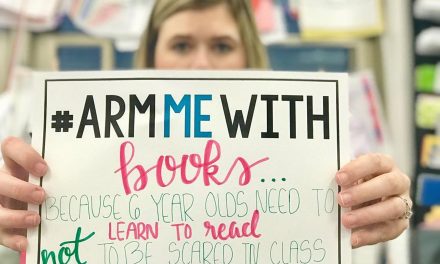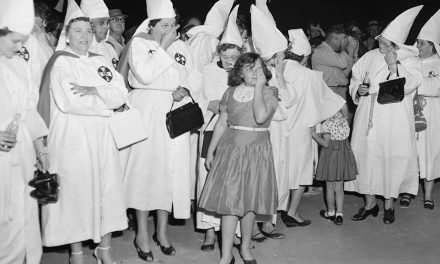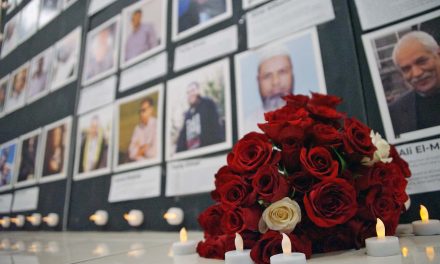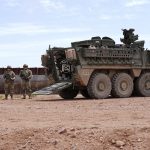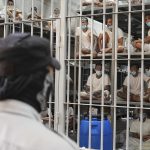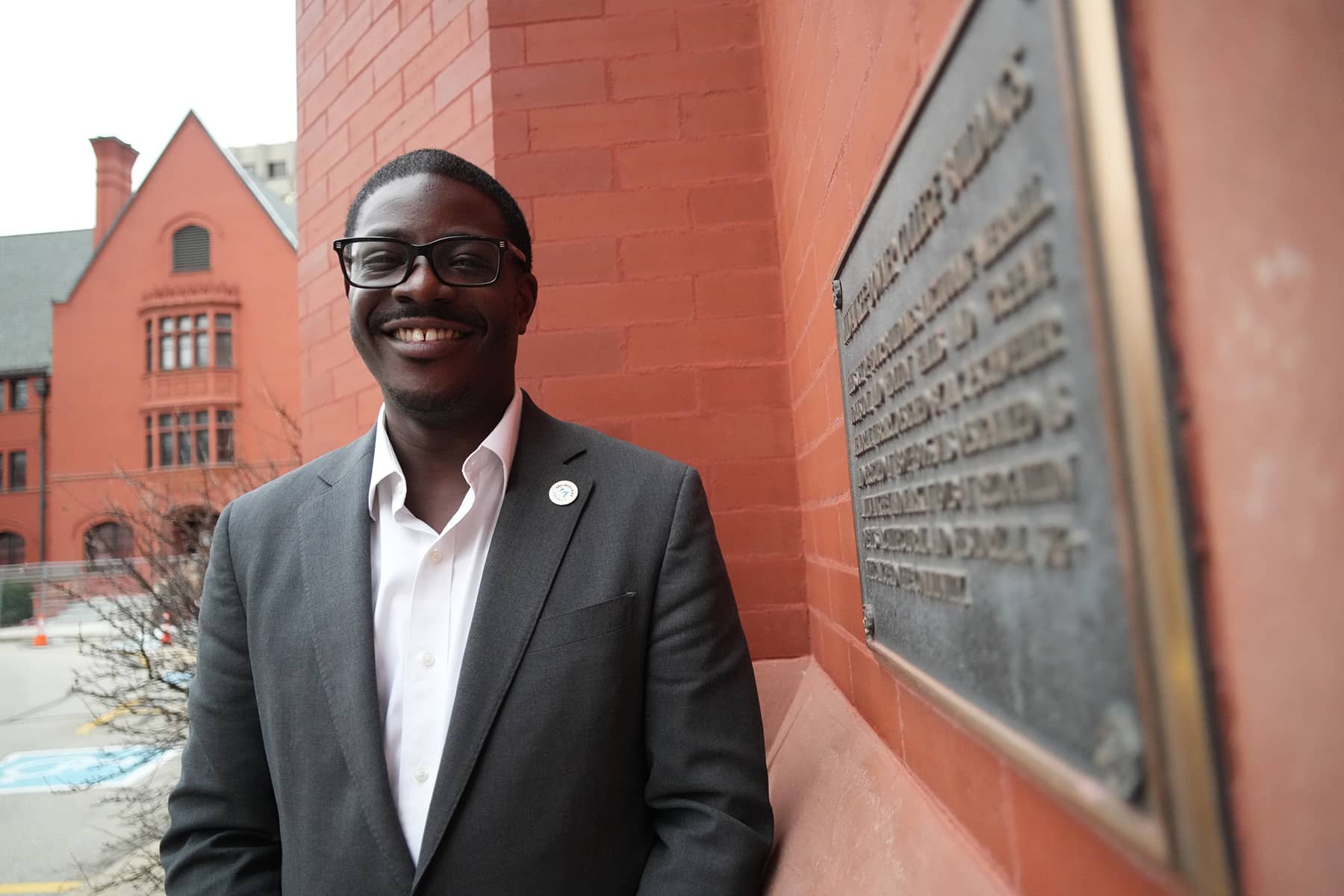
It is not every day that a high-level elected official quietly attends classes, writes research papers, and sits side-by-side with traditional undergraduates while holding one of the most influential positions in local government. Yet Milwaukee County Executive David Crowley, who has recently completed a bachelor’s degree in Community Engagement and Education from the University of Wisconsin–Milwaukee (UWM), managed to do exactly that.
Over the course of finishing his degree, Crowley balanced the hefty responsibilities of his public office and the demands of his personal life, all while aiming to set an example for his children and the community.
In a candid interview with Milwaukee Independent, Crowley opened up about the personal investment it took to return to college as a full-time student and the family inspirations that drove him to persevere.
He also discussed how his course of study has already begun to influence policymaking decisions, what he learned about himself through the arduous academic process, and the pain of losing his close friend.
It was while attending Bay View High School that Crowley showed an interest in enlisting with the Navy. However, after graduating in 2004 he was by then considering joining a police cadet program. Ultimately he enrolled at the University of Wisconsin-Milwaukee with the intent to study sociology. It was his hope that higher education would serve as a bridge to a better future.
Being a young adult, he soon found that his personal goals and the reality of life were pulling him in opposite directions. Crowley’s girlfriend at the time gave birth to a daughter and with that new responsibility, he confronted difficult choices.
Determined to ensure financial stability and mindful of the kind of life he wanted for his child, he left school to join an electrical apprenticeship program. Faced with the immediate need to provide, he sacrificed his academic goals and redirected his energy into full-time work.
Walking away from college years ago did not stall his forward momentum. Instead, it redirected his path into public service. He started at the ground level, supporting elected officials behind the scenes, then won a seat in the Wisconsin State Assembly. Eventually, he went on to break political and racial barriers as Milwaukee County’s youngest Executive — and the first African American to hold that esteemed office.
Still, for all of his career successes, he carried a persistent feeling that there was one personal challenge he had yet to meet – completing his college degree. Crowley yearned for more than professional titles and positions of trust. He wanted to hold something tangible that would show his daughters and communities around Milwaukee County the importance of following through, no matter how long it might take.
Crowley delivered his 2023 State of the County Address on February 21, 2023, at UWM. During the speech, he mentioned his enrollment at UWM and highlighted the importance of completing his college education. But for much of Crowley’s academic career at UWM, the press had shown little interest in his student status.
“I never got any media coverage about this throughout the tenure of being in college until I was graduating, which was a good thing,” said Crowley.
The anonymity allowed him to be immersed in classes without distractions and helped him to fit in with other students. But as graduation approached, Crowley was not surprised to face the inevitable and somewhat predictable questions from the news media.
“The number one question I get asked is, why did you go back? I think it is a valid question. I mean, why would a 30-something County Executive return to undergraduate life?” said Crowley. “My going back was to be an example for my daughters, to be an example for this community. But it was also something that was deeply personal because I made a promise to my mother before she transitioned.”
There was one aspect of his college journey that no reporter in any interview had asked him, how was he paying for college? The answer: student loans.
For someone who had been out of an academic setting for years, re-entering the classroom was far from simple. Crowley described the initial shock of taking on a full-time course load while leading a county, raising children, and maintaining a marriage. Time management, discipline, and resilience became his watchwords.
“I learned how disciplined I could really be. It is not easy returning to school as a parent with a demanding job. Whether it’s five or ten years, it can feel insurmountable. I haven’t written academic papers, I haven’t had to remember all these different things,” said Crowley. “When I was in high school, I wasn’t the smartest student in class. I didn’t have someone urging me to go to college. But since being back at UWM, I’ve never received a grade less than a ‘B.’ So now I feel that I’m just as good as anyone else academically.”
Crowley said that the experience taught him a great deal about resilience, perseverance, and his ability to manage multiple, sometimes conflicting roles.
“I learned that I was good at managing my time. And I can remain committed to doing the work,” said Crowley, noting that aside from being a full-time student, “I’m the County Executive, a husband, and a father.”
As a non-traditional student in his late thirties, Crowley arrived on campus with a fresh perspective and the maturity to juggle demands that would be unthinkable for many undergraduates.
He attended classes, worked on assignments late into the night, and then turned around to guide his daughters through their own homework. He participated in lively classroom discussions, contributed thoughtful insights on policy, and brought a lived understanding of community issues.
In all his interactions at UWM, he never sought to draw attention to his position as County Executive. More often than not, classmates and even some instructors were unaware of his public role, seeing him simply as another student invested in the course material.
While Crowley’s attempt to keep his identity under wraps was mostly successful, it was inevitable that some classmates would discover who he was. When asked how others reacted upon that discovery, he shared an anecdote from his public speaking course.
“I was the first student that day to give a speech in class. So I give my presentation and the classroom looks upset,” said Crowley. “The reaction was, ‘Is that the bar for this class? Is this how we’re all supposed to sound?’ One classmate happened to be related to a Milwaukee County Parks employee, and she let the secret slip. She said something like, ‘He does this all the time. He’s the County Executive.'”
Knowing that Crowley was not just another student, but a public figure who had experience with giving such a well-polished presentation, came as a relief to his classmates.
“I remember when they found out that I was the County Executive, one student said, ‘County Executive, what’s that?’ So it became a teachable moment about democracy, civic engagement, and the workings of county governance,” said Crowley.
Far from disrupting the classroom dynamic, his role opened up many avenues for engagement. He could share real-world political insights with younger students, many of whom had no firsthand connection to any level of government.
“When people knew who I was, it created opportunities to connect with students. I brought my experience, some of the skills and tools that I use when I’m doing some public speaking,” Crowley said. “It educated them on politics, and let them see that people who are elected to high positions are also normal people at the same time.”
Community Engagement and Education, Crowley’s chosen field of study, could not have been more aligned with his role as a public official. He described how his coursework has already informed the policies he shapes as the Executive of Milwaukee County.
“This particular major is great for anyone who wants to go into public administration or local government,” said Crowley. “It’s for anyone who wants to do nonprofit work or get into the educational field. This major has already allowed me to use many of the nuggets that I’ve learned in my classes.”
The significance of local history and racial dynamics, taught as core elements of his major, translated into actionable insights for governing a county grappling with issues like segregation, public housing, transportation, and the social consequences of lacking access to health services.
“The CEED program, which stands for Community Engagement and Education, is really focused on things that have happened right here locally in Milwaukee,” said Crowley.
Students examine historical developments, understand the architecture of community organizing, and learn how educational policies have shaped Milwaukee’s neighborhoods. Crowley said that if people do not understand history, they do not understand why a thing may be a thing.
“Quite frankly, I think this entire major will not only make an impact related to my ability as County Executive, but people who go into this particular major will be able to do even greater things than myself,” said Crowley. “They’ll be coming in younger, they’ll be coming in with fresher and newer ideas than I have. That will allow them the ability to make a bigger impact.”
Learning about the city’s past had real implications for his decision-making. For a policymaker, that informed historical context was vital. Crowley could better comprehend systemic issues and work toward dismantling entrenched inequalities. He also highlighted how coursework supported many of the county’s goals.
“This bachelor’s degree has had master’s level courses as well,” said Crowley. “So it really gave me the opportunity to do a lot of research, particularly around the social determinants of health – something near and dear to me – that can bring in more research dollars to an institution like UW-Milwaukee, helping us to expand the work that we’re building on now.”
The educational grounding helped him see beyond budgets and legislative bills. He can now bring an academic lens to public policy, searching for structural solutions to long-standing community issues.
He cited one course in particular called “The Milwaukee Community.” Students in the class toured the city, studied its complex heritage, and read pivotal works such as John Gurda’s books about Milwaukee and “Selma of the North” by Patrick D Jones, which highlighted the Black Milwaukee experience.
“We visited different areas and talked about the county’s legacy of segregation, like how the Italians had to stay in the Third Ward, and all the African-Americans in Bronzeville. On the south side, we didn’t even have the Hispanic population back then. It was pretty much just Polish,” said Crowley. “Understanding our history, and that this community was built on segregation – because that’s how people build power, gave me a lot of insight. My job is to dismantle the power structure built on segregation. That’s how we’re going to build equitable power moving forward. Our diversity is our strength.”
The academic deep dive also assisted Crowley’s perspectives on other issues ranging from economic disparities to violence prevention.
“This college degree focuses on a lot of the social and societal issues that we’re facing, and improving those conditions would make sure we are the healthiest county in the state of Wisconsin,” said Crowley.
His academic journey intersected with the emotional toll of a profound personal loss, the death of Crowley’s close friend, a fellow public official, and UWM alum, State Representative-turned-Alderman Jonathan Brostoff.
Brostoff was not only someone who understood the importance of education but was also a confidant who shared Crowley’s passion for improving Milwaukee.
“When I told Jonathan that I was coming to UWM, he was extremely excited,” said Crowley. “He was ready to see me as a fellow Panther.”
The two had planned to collaborate on one of Crowley’s course assignments, as he was required to interview a UWM alum for a communications class. Heartbreakingly, Brostoff passed away before that interview could take place.
“Jonathan Brostoff was supposed to be my subject. The Sunday before he passed away was the night that we were actually supposed to talk,” said Crowley. “So when I think about my journey here, and I think about how Jonathan represented this area as an elected official, all the things we’ve done together personally and professionally related to UWM, he is such an entwined part of that. When I think about all our connections, I feel that my degree is also for him.”
Jonathan was one of Crowley’s best friends, and the loss has weighed heavily on him. They had shared many special moments together over the years, supporting each other’s ambitions and pushing each other to achieve a greater impact on the community.
“Jonathan taught me so much about what it means to show up, to do the work even when it’s hard, and to be there for others. He showed me that courage isn’t about being fearless — it’s about standing up for what’s right, even when you’re scared. He inspired me to see the world not as it is, but as it could be, and to work toward that vision just as he did.” – David Crowley, speaking at Alderman Brostoff’s November 8, 2024 Funeral
Crowley recalled one of Brostoff’s favorite sayings, “Knuck if you buck,” implying the need to be ready for challenges. Going back to college was one such challenge, and both Brostoff and his wife Diane were proud of his commitment to finishing his degree.
“I know Jonathan would be ecstatic that I am graduating, and I know that he would have been in those stands cheering for me if he was here today,” said Crowley.
Processing Brostoff’s absence continues to be a daily struggle for Crowley. They used to exchange social media memes and short videos as a form of regular communication.
“Every day I think about him because I always want to send something to him. So there is this black hole in my life with Jonathan being gone that may never be filled. It helps doing what I can do to honor his memory,” said Crowley. “No matter what anyone probably thought about Jonathan Brostoff, no matter where he stood on the political spectrum with folks, you knew that he cared. He had a way of making you feel like he was the only one there, that he was only listening to you.”
While Brostoff provided a political and personal anchor, Crowley’s family, particularly his wife and his late mother, formed the backbone of his emotional and motivational support.
“Going back to school meant I had to make a lot of sacrifices, but I was not the only one making sacrifices,” said Crowley. “I learned in this process how to take care of my wife a little bit more because she has been the unsung hero in all of this. I would not be where I am now if it wasn’t for Ericka.”
Crowley often jokes that his wife is actually his better “three-quarters.” He went on to describe his mother as someone who believed in facing challenges head-on, largely because she had confronted so many difficulties in her own life.
“I remember when I told my Mom I was going back to school, she was just as excited as she was when I became the County Executive. She looked at me as like, ‘You’re making an investment. You’re not just thinking about yourself. You’re thinking about the future.’ I’ve learned that as people, we can overcome challenges,” said Crowley. “It’s really about sometimes standing up to the challenge, looking at the challenge right in the face, and making the decision that you’re about to go toe-to-toe with this challenge.”
Crowley’s mother had all boys and through him, she got three granddaughters. The eldest at 17 is getting ready to graduate and thinking about college herself.
“I know that when she looks at me, she’s like, ‘Well if you can do it, I know I can do it.’ I’m glad she has that inspiration, and I also want that for my other girls,” said Crowley. “But my mother was all about being disciplined and making sure that you do what you need to do. She also understood about the things that have happened in your past, the things that you’ve experienced, and how your mistakes don’t define who you are.”
Crowley recalled a tough conversation with his mother years ago, when she required care and attention due to her physical health. She was feeling depressed, in part because of family strain over past issues, regrets over missteps, and the feeling of being unloved.
“I told her, ‘Mama, we forgive you, but it’s time that you forgive yourself. Because if you don’t forgive yourself, it’s going to be hard for you to move forward.’ That taught me about what resilience meant,” said Crowley. “Part of the journey is that a lot of times you’re sad, you’re depressed, but it’s all about the things that you’ve done in the past that you can’t undo. And it’s hard for you to get those things out of your head because they just get stuck.”
To truly move forward, Crowley felt people must confront their challenges, believe in their own strength, and persist with determination. That was a philosophy Crowley saw embodied in his mother. She overcame her battle with addiction, demonstrating incredible strength by breaking the cycle that had gripped her life. For over a decade, she achieved the stability of consistent housing, providing herself with a foundation to live and work despite the difficulties she faced.
“She did all that even throughout her illness at the end, being resilient. Even while my mother was slowly deteriorating, she never told us about her condition,” said Crowley. “Anytime I went to see her, she still had the same smile. You didn’t need the sun shining because you had that warm and radiant glow from my mother, and it would light up the room. She was the type of person that you just gravitate to.”
Reflecting on her life and influence, Crowley expressed a deep sense of honor and connection to her legacy. Her story of resilience has inspired him to consider writing a book dedicated to her, believing that her journey could resonate with the challenges and triumphs of others, particularly with his 2024 graduating class.
In the 2021 interview with Milwaukee Independent, Crowley was asked what message he would send to his 60-year-old self in the future.
> READ: David Crowley: A Day in Photos during the Pandemic with the County Executive
Now, as he approaches middle age and looks back on a younger version of himself, an 18-year-old unsure of what tomorrow would bring, he was asked to contemplate what advice he would give that younger self, and what would that 2004 version want to ask his future self.
“I remember the quote Dr. Howard Fuller told me when I was 18 years old, ‘Sometimes you have to leap before you look.’ I didn’t know what that meant for many years until I became an elected official. Because I went out on a limb and decided to do something that I didn’t know if I was ready for,” said Crowley. “When I decided to run for Milwaukee County Executive, people told me not to do it and didn’t believe I could win. But I still went out there and leaped before I looked. So, if I had to tell my 18-year-old self something, it would definitely be an iteration of leap before you look.”
Crowley also acknowledged a fear that had once consumed him, the fear of failure. For years, it was something he had avoided at all costs, but his perspective eventually shifted. Over time, he began to embrace failure as a necessary step toward growth.
To him, failing was not the end, it was a call to rise again. He believed that a person should not remain down but instead find the strength to get back up and keep moving forward. That philosophy had come to define his approach to life, encouraging him to move outside of his comfort zone to face challenges with determination.
Crowley often found inspiration in the idea of fully committing to action rather than hesitating or holding back. His mindset reflected a deep belief in decisiveness, emphasizing the importance of learning from failure and continuing to push forward despite setbacks.
“There’s nothing wrong with taking chances. And now, I tell people that failure is a good thing as long as you learn from it,” said Crowley.
Crowley’s story is inherently one of resilience. He is a public official who pursued academia in the prime of his political career, who confronted the uncertainty of returning to textbooks and examinations, and who persevered through personal loss.
His educational journey underscored the belief that a college degree was not merely a credential. It could be a catalyst for better governance. By immersing himself in scholarly analysis of community issues, challenging his own assumptions, and learning from the history of Milwaukee’s neighborhoods, Crowley gained new tools to address entrenched problems.
His experiences offer a blueprint for other leaders and everyday citizens alike. Resilience is not a trait reserved for overcoming personal hardship. It is also essential in navigating public life, policy formation, and community engagement.
“I’m proud to be a part of this class of graduates. We started during the pandemic when students who just began their college experience found their education suddenly disrupted,” Crowley added. “But we’ve pushed through this process, and I’ve learned that our resiliency is our real strength.”




































